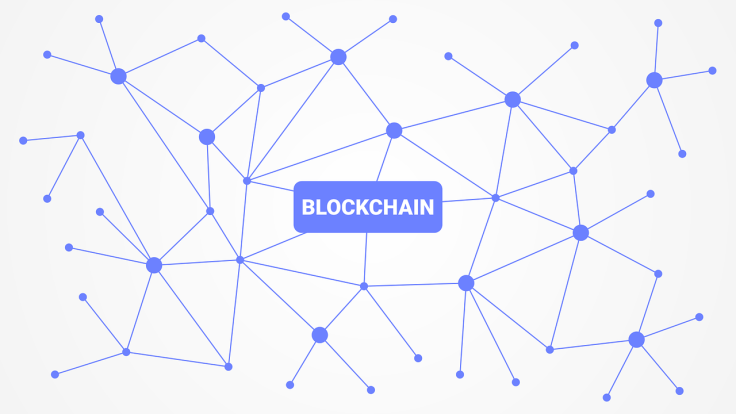Auctions Have Been With Us For Thousands Of Years; Blockchain Is Reinventing Them
In March, the high-profile failure of Silicon Valley Bank and Signature Bank sent shockwaves through financial markets. The banks' sudden collapse cast a pall of uncertainty over much of the venture-backed startup ecosystem, both in the U.S. and globally. Ever since, executives, government officials and market watchers have been looking to identify and head off any signs of wider contagion.
But while concern and controversy percolate through global financial markets, one aspect of the SVB saga has been unremarkable. Looking to dispose of the defunct firm's assets, the U.S. FDIC turned to a tried and tested concept: the auction.
And with good reason: Auctions have been a pillar of global trading systems for more than 2,000 years. Now, this timeless economic tool is poised for a 21st-century update, thanks to the blockchain.
Blockchain? Wasn't that just a bubble that burst?
In a word, no. From payment to ownership, authenticity to provenance, blockchains stand to revolutionize the way auctions work.
From the first traditional auction in 500 B.C. through to today's digital platforms like eBay, the traditional auction process has been hampered by three main problems.
First, it is centralized. Most auctions are controlled by a single auction house or broker, which can result in a lack of transparency and fairness.
Second, they can be expensive for sellers, who may have to pay significant commissions to the auction house. Plus, traditional auctions can be difficult to access for inexperienced buyers due to complex and intimidating bidding processes, each following its own set of rules, customs and terminologies. Further, traditional auctions of physical assets are often limited to a specific geographic location, which can restrict the pool of potential bidders and buyers.
Finally, auctions require a great deal of work authenticating, documenting and valuing the item or items to be sold. Fine art must be evaluated by a trained expert; collectibles of all sorts, from wine to trading cards to sneakers, must be verified as authentic by trusted intermediaries. Otherwise, scams and counterfeits become a major risk.
This need for centralized curation, management and authentication throws up myriad barriers that harm potential sellers as well as buyers. To take just one example, collectible trading cards can command astonishing prices at auction — but only if they are authenticated by one of a handful of leading services. These services can cost hundreds of dollars and can take weeks or even months.
During the frothy markets of 2021, many stopped accepting new submissions altogether, effectively freezing out any new market entrants. As a result, someone could have a collection worth tens of thousands of dollars and literally no way to sell it in a market saturated with would-be buyers.
Blockchains can eliminate these pain points. If an asset has a digital identity stored on the blockchain, its authenticity, provenance and chain of ownership can be indelibly recorded — no need for an expert "middleman" to vouch for it. Smart contract features such as contingency and automatic execution remove much of the logistical prep work traditional auction houses must go through. And features like regrettable auction technology can keep any scams at bay by nullifying an auction when fraudulent activity is discovered.
The effect of these improvements will be to deliver an experience that feels familiar but quicker, easier and much more accessible.
In the near future, many people may not even realize that a blockchain is facilitating an auction they're taking part in. That's because properly implemented blockchain technology works in the background. It isn't about faddish tokens or digital art. It's about new infrastructure for old processes — in the case of auctions, ones that have existed for millennia — to make them faster, fairer and more trustworthy.
A skeptic might counter that blockchain auctions have been tried and have failed to gain mainstream adoption. It's true that the past couple of years saw a lot of buzz around NFT auctions, with people bidding up the price of novelty items like bored apes. If this were the only use case for blockchain auctions, the naysayers would have a point.
But these hype cycles don't represent the real game-changing potential of blockchains to improve the way auctions are conducted. Far more than sales of digital meme art, blockchain technology stands to improve the way high physical, as well as digital assets, are bought and sold. It's much harder to argue that a Picasso or a Rolex doesn't have real-world value — or that there isn't a need to reliably prove ownership and provenance.
Recent events serve as a reminder of just how central auctions continue to be to the functioning of modern economies. But until now, they've had to rely on limited technological means, resulting in a system that suffers from bottlenecks, opacity and the exclusion of many would-be participants. Now, blockchains are poised to rewire this pillar of commerce. The trust, transparency and efficiency they introduce can revolutionize marketplaces around the world.
(Jack Lu is the CEO of Bounce, a Web3 auction-as-a-service company.)

© Copyright IBTimes 2025. All rights reserved.




















